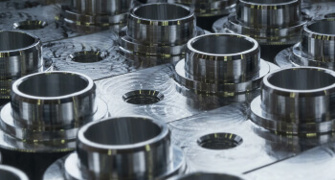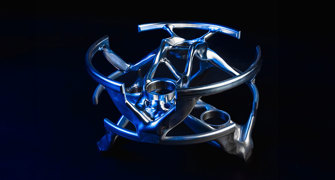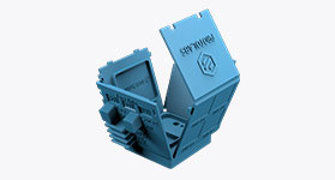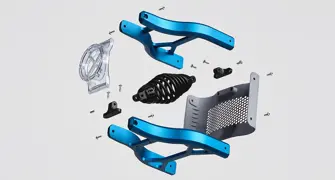Compare 3D Printing Materials
* Please Note: The information contained herein are typical values intended for reference and comparison purposes only. They should NOT be used as a basis for design specifications for quality control.


Ready for Full-Service Production?
We are your manufacturing partner to scale projects to production. Get complete program management with a team who can tailor our capabilities to optimise cost, quantity, and quality control of your production order.

The material selection process
Do you need a guide for selecting thermoplastic materials? Here you will find expert knowledge about thermoplastics and tips that will make it easier for you to choose a material for your moulded parts.

Protolabs x NASA
We partnered with NASA to machine a crowdsourced, generatively designed part that was delivered in only 36 hours so the design could be presented at the PowerSource Global Summit.

Design Cube
Our helpful design aid demonstrates part features that are too thin or too thick, bad bosses, right and wrong ribs, and other considerations to be mindful of while designing parts for injection moulding.
Halesfield 8,
Telford,
Shropshire,
TF7 4QN
P: +44 (0) 1952 683047
E: customerservice@protolabs.co.uk

Manufacture like a Pro
From custom prototyping to end-use production, we're your trusted manufacturing partner helping you drive product development and innovation forward.
* Please Note: The information contained herein are typical values intended for reference and comparison purposes only. They should NOT be used as a basis for design specifications for quality control.

























